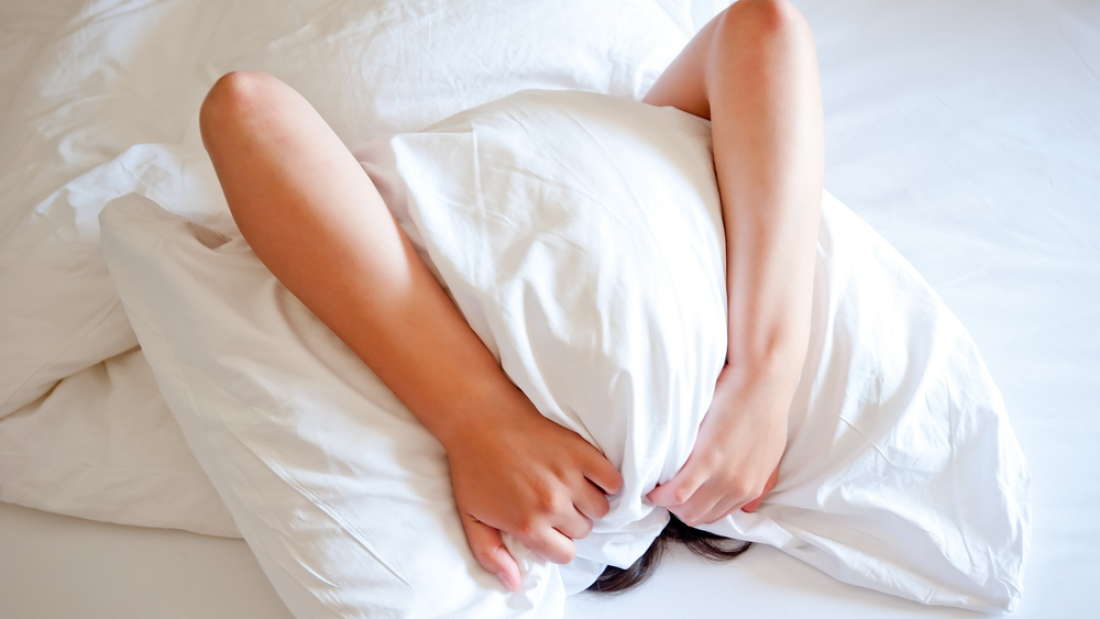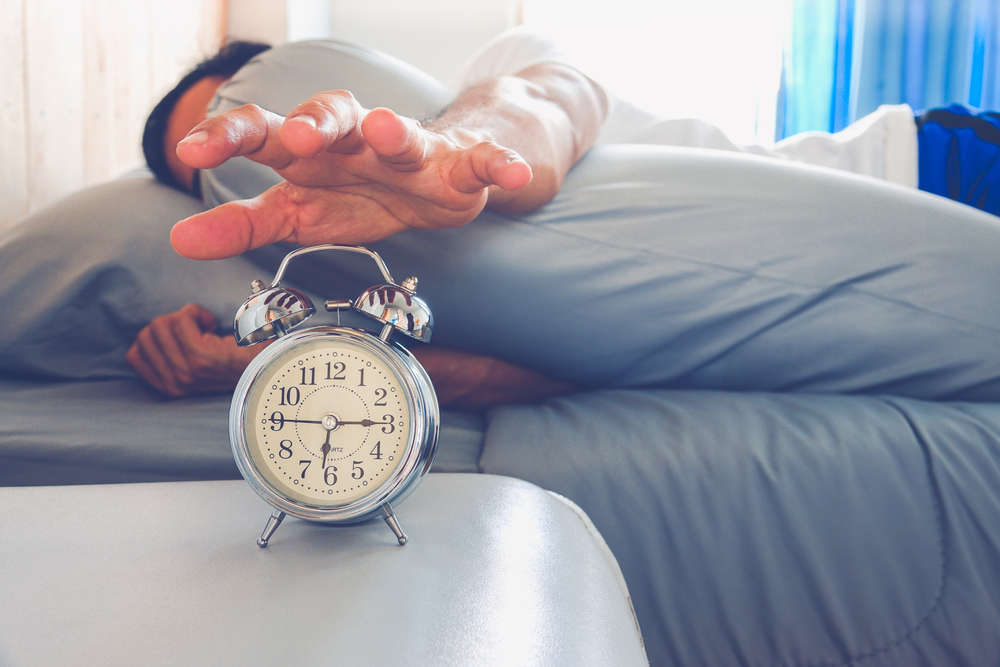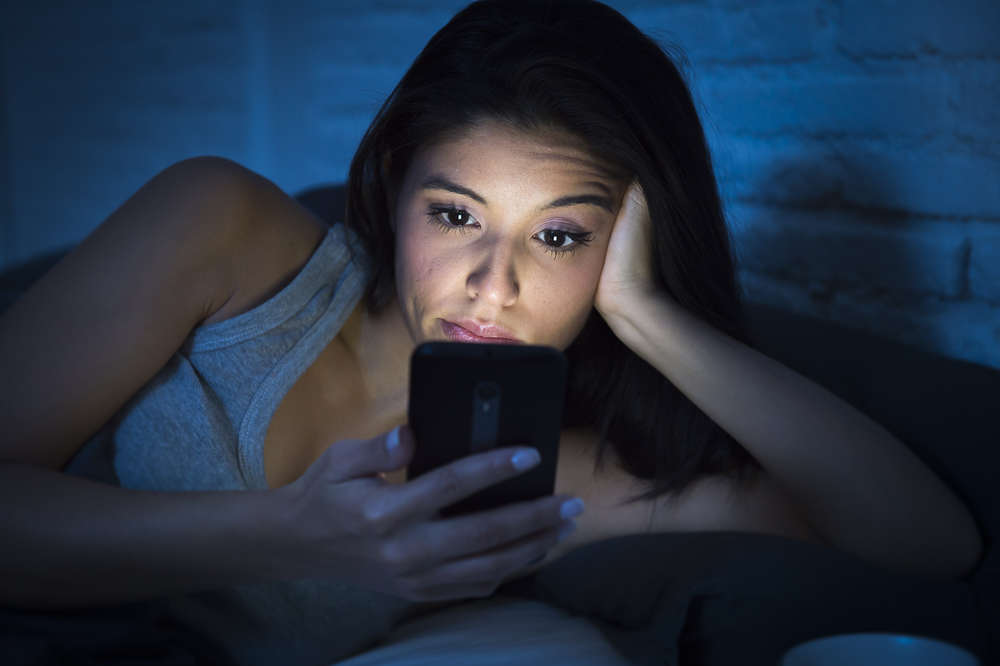你会在闹钟响之前醒来吗?
Why do we wake up before the alarm goes off?

One of life’s great irritants is waking up juuuuust before your alarm goes off. Three minutes 15 seconds? That’s not enough time to fall back asleep, but just long enough to feel robbed of precious Zzzzzs.
So, what gives? Are you so afraid of being late to work your body is in panic mode before you're even awake, or do you just really, really hate your alarm?
Slave to the rhythm
Your body’s internal clock – its circadian rhythm – governs your sleep-wake cycle. It’s like a 24-hour clock that runs in the background controlling your blood pressure, body temperature, and sense of time that dictates how sleepy or alert you are.
Outside factors can influence your circadian rhythm – when it gets dark at night, your eyes send a signal to the hypothalamus, the part of the brain that dictates your energy levels and helps maintain circadian rhythms, that you should be feeling tired about now. Your brain dutifully responds, sending a signal to the body to release melatonin, which makes you feel tired.
However, your circadian rhythm is attuned to you, so if you’re a night owl, your sleep-wake cycle will be different from morning larks, but as long as you're getting the right amount of sleep, you’ll barely notice the highs and lows of your circadian rhythm.
Your body clock works best when it has routine. If you go to bed at the same time each night, it gets used to the amount of sleep you have/need and knows when to wake up in the morning. Your sleep cycle is partly regulated by the protein PER, levels of which rise and fall each day. When PER levels drop (at night) your heart rate slows, blood pressure drops, and your thinking gets a bit fuzzy: you’re tired.
If you have a consistent sleep-wake routine, waking up at the same time every day, your body starts to increase its PER levels, including blood pressure and body temperature, as well as releasing hormones like cortisol that help you deal with stress, about an hour before you usually wake, helping to ease your way into a brand new day.

You snooze, you lose
Basically, your body hates your alarm and doesn’t want to be dragged kicking and screaming out of delicious sleep, it wants to get there leisurely and at its own pace, thank you very much.
Sometimes that means your body is so well trained it knows exactly when to wake up to within a couple of minutes. Unfortunately, sometimes that also translates into a hideous panicky feeling of waking bolt upright thinking you’ve overslept and missed your alarm completely, but hey ho.
But if you press that snooze button, it undoes all that good work your body was doing helping you transition smoothly from asleep to awake, mixing up the hormones that help you fall asleep with the ones that help you wake, and before you know it— BZZZZZZZ! And you end up feeling worse.
So why have an alarm in the first place? Can’t the body be trusted to wake up when it needs to on its own? Put it this way, how important is it to you that you get to work on time in the morning?
However, if you really hate waking up to an alarm in the morning, you’re either not getting enough sleep or have the wrong kind of alarm.
A routine will help you sleep better, even if you are a night owl. Consistency is key or your body clock won’t know what to do with itself. Burning the candle at both ends leaves you feeling both lousy and possibly doing serious harm to your health, and having too varied a routine sends mixed signals. Even just having a weekend lie-in can throw your body clock out of whack – undoing the good work of a week-day routine, and not doing enough to help you claw back the damage of lost sleep.
On the other hand, sleeping too much comes with its own health risks (it's like we can’t win).

Seeing the light
If you really struggle with waking up in the morning, maybe re-think your alarm clock, after all there’s nothing that says one size fits all. Try mimicking the body’s technique by using one with a gradual alarm sound that will slowly wake you up and not scare the bejesus out of you.
Or perhaps forego sound altogether and go for a natural light alarm clock, which does the same thing, but with simulated natural light, nudging you awake and helping your eyes adjust.
Whatever you do, don’t use your smartphone as your alarm. Not only is it well documented that the light emitted from the screen as you scroll through before bed disrupts the signals your body is being given that dark (night time) makes you feel sleepy, but the specific blue light of the visual display can decrease your body’s production of melatonin.
更多精彩详细内容关注小译号【IFLScience】